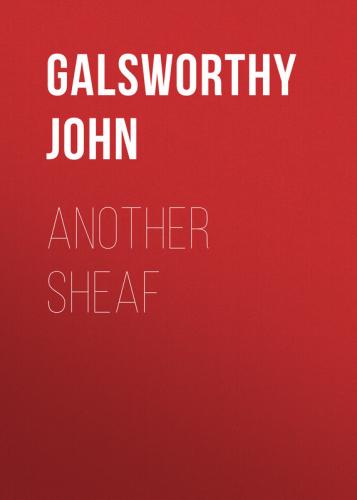Marseilles swarmed with soldiers; Lyon, Valence, Arles, even the smallest cities swarmed with soldiers, and this at the moment when the Allied offensive was just beginning. If France be nearing the end of her man-power, as some assert, she conceals it so that one would think she was at the beginning.
From Marseilles we went to Lyon. I have heard that town described as lamentably plain; but compared with Manchester or Sheffield it is as heaven to hell. Between its two wide rolling rivers, under a line of heights, it has somewhat the aspect of an enormous commercialised Florence. Perhaps in foggy weather it may be dreary, but the sky was blue and the sun shone, a huge Foire was just opening, and every street bustled in a dignified manner.
The English have always had a vague idea that France is an immoral country. To the eye of a mere visitor France is the most moral of the four Great Powers – France, Russia, England, Germany; has the strongest family life and the most seemly streets. Young men and maidens are never seen walking or lying about, half-embraced, as in puritanical England. Fire is not played with – openly, at least. The slow-fly amorousness of the British working classes evidently does not suit the quicker blood of France. There is just enough of the South in the French to keep demonstration of affection away from daylight. A certain school of French novelist, with high-coloured tales of Parisian life, is responsible for his country's reputation. Whatever the Frenchman about town may be, he seems by no means typical of the many millions of Frenchmen who are not about town. And if Frenchwomen, as I have heard Frenchmen say, are légères, they are the best mothers in the world, and their "lightness" is not vulgarly obtruded. They say many domestic tragedies will be played at the conclusion of the war. If so, they will not be played in France alone; and compared with the tragedies of fidelity played all these dreadful years they will be as black rabbits to brown for numbers. For the truth on morality in France we must go back, I suspect, to that general conclusion about the French character – the swift passage from head to heart and back again, which, prohibiting extremes of puritanism and of licence, preserves a sort of balance.
From this war France will emerge changed, though less changed very likely than any other country. A certain self-sufficiency that was very marked about French life will have sloughed away. I expect an opening of the doors, a toleration of other tastes and standards, a softening of the too narrow definiteness of French opinion.
Even Paris has opened her heart a little since the war; and the heart of Paris is close, hard, impatient of strangers. We noticed in our hospital that whenever we had a Parisian he introduced a different atmosphere, and led us a quiet or noisy dance. We had one whose name was Aimé, whose skin was like a baby's, who talked softly and fast, with little grunts, and before he left was quite the leading personality. We had another, a red-haired young one; when he was away on leave we hardly knew the hospital, it was so orderly. The sons of Paris are a breed apart, just as our Cockneys are. I do not pretend to fathom them; they have the texture and resilience of an indiarubber ball. And the women of Paris! Heaven forfend that I should say I know them! They are a sealed book. Still, even Parisians are less intolerant than in pre-war days of us dull English, perceiving in us, perhaps, a certain unexpected usefulness. And, à propos! One hears it said that in the regions of our British armies certain natives believe we have come to stay. What an intensely comic notion! And what a lurid light it throws on history, on the mistrust engendered between nations, on the cynicism which human conduct has forced deep into human hearts. No! If a British Government could be imagined behaving in such a way, the British population would leave England, become French citizens, and help to turn out the damned intruders!
But we did not encounter anywhere that comic belief. In all this land of France, chockful of those odd creatures, English men and women, we found only a wonderful and touching welcome. Not once during those long months of winter was an unfriendly word spoken in our hearing; not once were we treated with anything but true politeness and cordiality. Poilus and peasants, porters and officials, ladies, doctors, servants, shop-folk, were always considerate, always friendly, always desirous that we should feel at home. The very dogs gave us welcome! A little black half-Pomeranian came uninvited and made his home with us in our hospital; we called him Aristide. But on our walks with him we were liable to meet a posse of children who would exclaim, "Pom-pom! Voilà, Pom-pom!" and lead him away. Before night fell he would be with us again, with a bit of string or ribbon, bitten through, dangling from his collar. His children bored him terribly. We left him in trust to our poilus on that sad afternoon when "Good-bye" must be said, all those friendly hands shaken for the last time, and the friendly faces left. Through the little town the car bore us, away along the valley between the poplar trees with the first flush of spring on their twigs, and the magpies flighting across the road to the river-bank.
Конец ознакомительного фрагмента.
Текст предоставлен ООО «ЛитРес».
Прочитайте эту книгу целиком, купив полную легальную версию на ЛитРес.
Безопасно оплатить книгу можно банковской картой Visa, MasterCard, Maestro, со счета мобильного телефона, с платежного терминала, в салоне МТС или Связной, через PayPal, WebMoney, Яндекс.Деньги, QIWI Кошелек, бонусными картами или другим удобным Вам способом.
